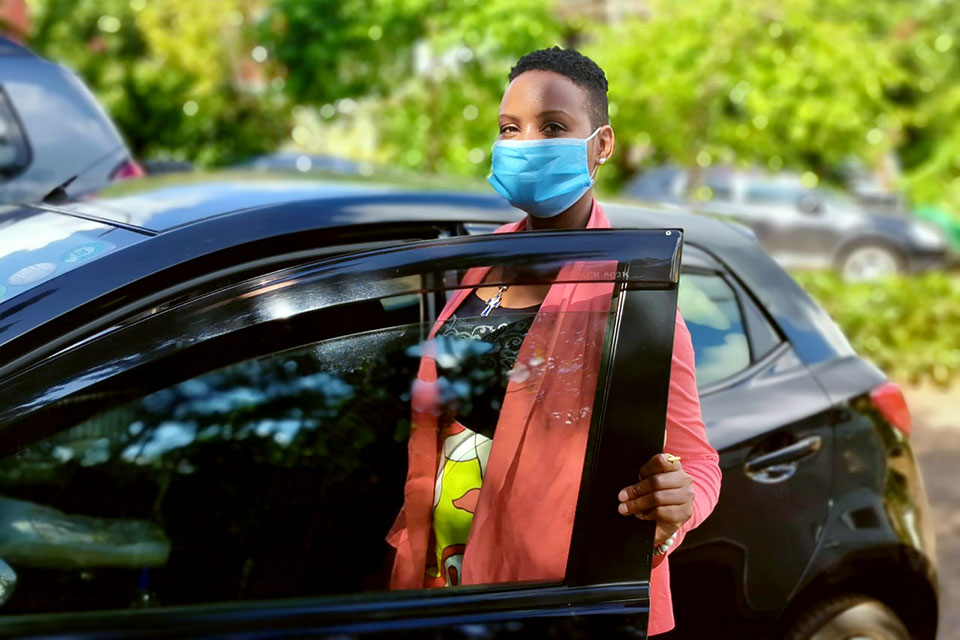From where I stand: “It has become impossible to meet daily needs”
Esther Macharia, 37, is a single mother and the only breadwinner for herself and her daughter. When the COVID-19 crisis came to Kenya, she lost nearly her entire income as a rideshare driver in Nairobi, as people are no longer requesting rides. Her story reflects the hardship that millions of women now face, as workers with low wages and without safety nets.Date:

![]() As the sixth-born child to poor parents, there wasn’t enough money for me to pursue any studies after high school. Growing up, my siblings and I often missed school to help our parents harvest vegetables from our land so that we could eat. After graduating, I moved to Nairobi to find work to sustain myself.
As the sixth-born child to poor parents, there wasn’t enough money for me to pursue any studies after high school. Growing up, my siblings and I often missed school to help our parents harvest vegetables from our land so that we could eat. After graduating, I moved to Nairobi to find work to sustain myself.
For the past two years, I’ve been working as an Uber driver in Nairobi. My daughter and I live outside of the city, in Kiambu County. A friend introduced me to the Uber business. I was able to get the job after convincing my sister to lend me her car. I assured her that we could make more money by using the car as an Uber driver.
Before COVID-19, business was promising. I could spend time with my daughter and also meet my daily targets. But the pandemic has now made it impossible to make enough money for daily needs. With so many people working from home, I can go a full day without making a single trip. This means being left with a lot of pending bills… I can’t event make enough money to pay the rent.
With fewer trips, it would be helpful if the government could put pressure on employers in my field to lower their commission percentage, so that the drivers can take something home. It would also be helpful if banks could extend loan repayment periods in this time of crisis.
What I have learned from living through the pandemic is the importance of savings. Life is unpredictable. You must save as much as you can.
Although times are tough, I am still optimistic about the future. In five years, I see myself running a fleet of cars in this industry and creating employment opportunities for others.”
Esther Macharia is a 37-year-old single mother in Kenya’s usually bustling capital, Nairobi. Since the outbreak of COVID-19, the Kenyan government has made efforts to contain the spread of the disease in Nairobi by limiting people’s movement through a curfew and encouraging those who can, to work from home. These measures have caused Esther’s rideshare business to dwindle. UN Women is providing analysis on the situation of women in the context of COVID-19 in Kenya and other parts of Africa and advocating to incorporate gender concerns into COVID-19 response and recovery plans.